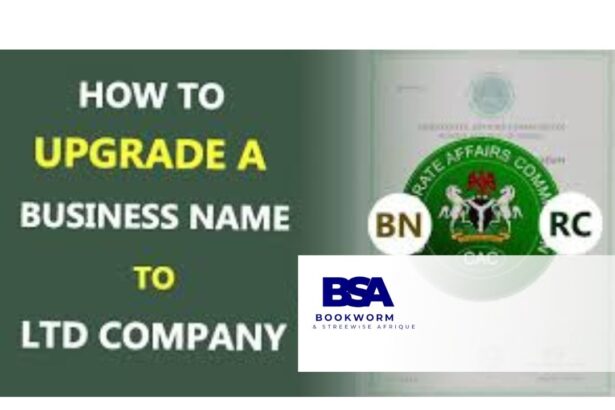
Starting or scaling a business in Africa is not for the weak. It takes great strength to overcome the various roadblocks, especially when funding is hard to come by. You may have the greatest idea and the strongest will, but your vision will quickly fall apart without the capital to start.
A lot of entrepreneurs in Africa do not fail because they are lazy or unambitious. Most times, it is things like funding that are out of the control of the entrepreneur that bring a business down. Trying to fund a business in Africa is hard, but nothing is impossible. If you know where to look, whom to ask, and how to prepare, then securing funding in Africa will not be hard.
In this article, I will explore 10 business funding opportunities in Africa.
1. Personal savings and family support

Let’s start with the most common and often most overlooked source of business funding in Africa: the money saved by your efforts, or in many cases by your family.
Many entrepreneurs in Africa actually end up sourcing their start-up funds from their own pocket. Some save for months or years, while others may rely on modest contributions from parents, siblings, or dear friends.
This form of fundraising may not be flashy, but it teaches you discipline. It may not be enough to scale up your dream into a multimillion-dollar company, but it can set you off. And often, starting small may be all that you need.
2. Angel investors
Angel investors are individuals who find promising startups and invest in them. Once they see potential in a business idea, they invest their own money to help the business grow.
Angel investors may not be very common in Africa, but you can find them if you know where to look. Increasingly, cities like Lagos, Nairobi, Cape Town, and Cairo have networks of people who are willing to put money into startups. However, they want to see passion, a solid plan, and an eagerness to learn.
For those in search of a little mentorship to go with the money, this might be the best option.
3. Venture capital (VC)
Venture capitalists are firms that invest in startups with the hope of getting big returns later. These firms only put their money into ideas that have the potential for greatness.
Accessing VCs in Africa is not easy. It’s competitive, and they often expect you to already have some traction; users, sales, or media attention. But if you have already started and are growing very fast, VC might be the fuel you need to explode.
4. Bank loans

This is possibly one of the easiest methods of obtaining funding for businesses. You don’t have to save for a long period or rely on the mercy of an angel investor or VC. You can just go to the bank and get a loan. However, most African banks are not startup-friendly, and you have to pay interest on the loan you collect. It might seem easy, but it’s also the riskiest.
African banks prefer lending to established companies with plenty of collateral. Small businesses and young adults with no land or big contracts will typically have to go through a rigorous process before they are given a loan.
5. Microfinance Institutions (MFIs)
If getting a bank loan is not working out well for you, you can try a microfinance institution. MFIs were formed to support the small-scale entrepreneurs, market women, artisans, small farmers, and so on. These loans could be small, but for many people, this is the first and most important step.
You do not always need collaterals, but mostly you will require guarantors and be a member of a group. The downside is that repayment periods are short and interests are high, so do not borrow money you cannot pay back.
It may not make you a millionaire overnight. But it can keep your hustling efforts alive while you build.
6. Business competitions and startup grants
If you believe your business idea has great potential, you can compete against other entrepreneurs and win funding for your business. You are given the chance to pitch your idea, define your model, and, in case the judges believe in you, you get funding and/or mentorship.
Competitions and grants like this are becoming more and more popular in Africa. The most notable include:
- Tony Elumelu Foundation
- Anzisha Prize
- Orange Social Venture Prize
- Seedstars Africa
Just like any competition, the process is hard, and you are not guaranteed a win. You would need to write compelling proposals and sometimes pitch before a judging panel. However, if your conviction is strong and you’re willing to work hard, this could be a way to get funding without giving equity or taking loans.
7. Crowdfunding
Crowdfunding platforms let you tell your story and encourage people to support your project, either with donations, by pre-ordering, or by taking equity stakes in your organization. It’s just like getting dozens of small investors rather than a single big one.
In Africa, Thundafund (South Africa) and StartSomeGood have helped many locals raise money for their companies. You may also consider launching your funding campaign using global platforms such as GoFundMe, Kickstarter, or Indiegogo, as long as your story connects.
It works best if your business has that social angle or a product that excites people.
8. Cooperative societies and rotating savings groups
Depending on which portion of Africa you are from, you might have heard these terms: “Esusu,” “Chamas,” “Tontines,” or “Stokvels.” They are age-old savings systems in which members make monthly contributions and take turns receiving the lump amount.
They are mainly put to use for weddings, school fees, or building houses. However, entrepreneurs can use them as seed capital for their businesses.
The beauty of this scheme is trust and community. You don’t need to convince strangers- you are working with people you know. Perhaps not in terms of millions, but it works for small-scale businesses.
9. Supplier and customer credit
Sometimes, the third party that funds you may not be a banking institution. It could come from your business partners.
Imagine you run a small restaurant. Instead of paying cash upfront for raw food supplies, you negotiate with your supplier to pay after 30 days. Or you’re a tailor, and your clients pay a deposit that covers the material cost before you even start sewing.
This is called trade credit-and is a genuine strategy used by smart entrepreneurs.
It works on trust and experience, so relationships are essential. The more reliable you are, the more flexible your partners will be. And the best thing is that you get to grow without any loans!
10. Government programs and public schemes

It is very easy to write off government programs as unreliable, but some have helped to build real businesses. There are programs created by many African governments to support small businesses, especially youth and women. These include:
- BOI (Bank of Industry) in Nigeria
- Uwezo Fund in Kenya
- GEA Support in Ghana
- SEFA in South Africa
They may offer loans without interest, grants, training, and tools. Awareness and corruption are the major challenges. However, if you keep your ears to the ground, you might just benefit. Just do not expect smooth sailing. It will take patience, paperwork, and persistence.
Conclusion
Don’t let your dreams die due to a lack of funding. There are several ways to fund your startup in Africa. As long as you have the will and drive, you will find a way to fund your business. The above 10 funding opportunities are a great starting place if you feel stuck.
📌 Need help/Assistance Talk to a consultant! Send us a DM Whatsapp: David (0704 193 2564) or visit our website bsagroup.ng for more details.
Kindly Follow us on IG for more update and information:Instagram.com/bookwormsolutions



